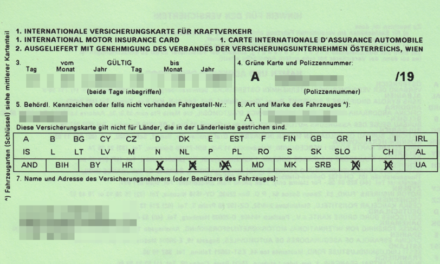Insurance fraud: definition
According to the agency for the fight against insurance fraud (Alfa), insurance fraud is an intentional act to unduly obtain a profit from an insurance contractwhich can be carried out by a legal or physical person.
This notion therefore includes A great diversity of situations, ranging from the subscription of the insurance contract to the declaration of claim. For auto insurance fraud, for example, they may be compensation requests made by “ghost passengers” or fictitious injuries following a road accident. But fraud concerns all types of insurance, whether they are taken out by individuals or businesses: home insurance, health insurance, health insurance, etc.
The consequences of insurance fraud
In 2018, Alfa identified 432 million euros in IARD fraud and 68 million euros in people’s insurance, a total of 500 million euros in France. According to Insurance Europe, the European Insurance and Reassurance Federation, fraud would represent up to 10 % of all expenses related to claims in Europe.
A significant cost for insurers, but also for customers (individuals or companies). Indeed, false complaints and investigations on alleged fraud lead an increase in bonuses for honest insured. What’s more, Fraud has an impact on the ability of insurers to quickly process legitimate complaintswhich harms the quality of their services.
For insurance professionals, investigating fraud attempts while quickly taking charge of authentic claims is particularly complex. This is why they must rely on new detection technologies, faster and more efficient.
The benefits of artificial intelligence for the detection of insurance fraud
The systems traditionally used by insurers to identify fraud today reach their limitsfor several reasons. First, because they are confined to schemes of fraud identified upstream by a human analysis. But also because insurance companies are faced with large volumes of unstructured data.
However, the Big data and Artificial intelligence solutionsbased on automatic learning (machine learning) and deep learning (Deep Learning), should change the game in the coming years. They indeed have several advantages, starting with their ability to detect unknown fraud beforeeven from unstructured data.
These AI -based models should also Reduce the proportion of false positivesnamely the complaints wrongly considered fraudulent. An important economy lever for insurance companies, which spend a lot of time and resources to investigate each suspicious case.
For more efficiency, insurance professionals will nevertheless have to enrich their databases and aggregate data from different information systems. They will thus increase the potential for detecting fraud of artificial intelligencewith better results.
How to put AI at the service of the fight against fraud?
New avenues for using AI
Towards a pooling of insurers data?
Finally, the future will certainly involve pooling the resources of the insurance sector. The creation of a Fraud mutual platformCyber risk and laundering is an interesting track.
However, this implies that all the actors “play the game” by sharing their respective information and centralizing this data in a common space. Without forgetting the data security considerations.
Thanks to this extended database, The diagnostic capacity of artificial intelligence would improve considerably. In addition, the pooling of resources would result in a better distribution of the costs of the fight against insurance fraud, but also a drop in the marginal cost linked to the identification of suspicious cases.
In the coming years, artificial intelligence will doubt a central role in the optimization of insurance fraud detection devices. However, to successfully integrate AI into their internal devices, insurers will have to rely on an efficient and interconnected software solution for their IT ecosystem.





